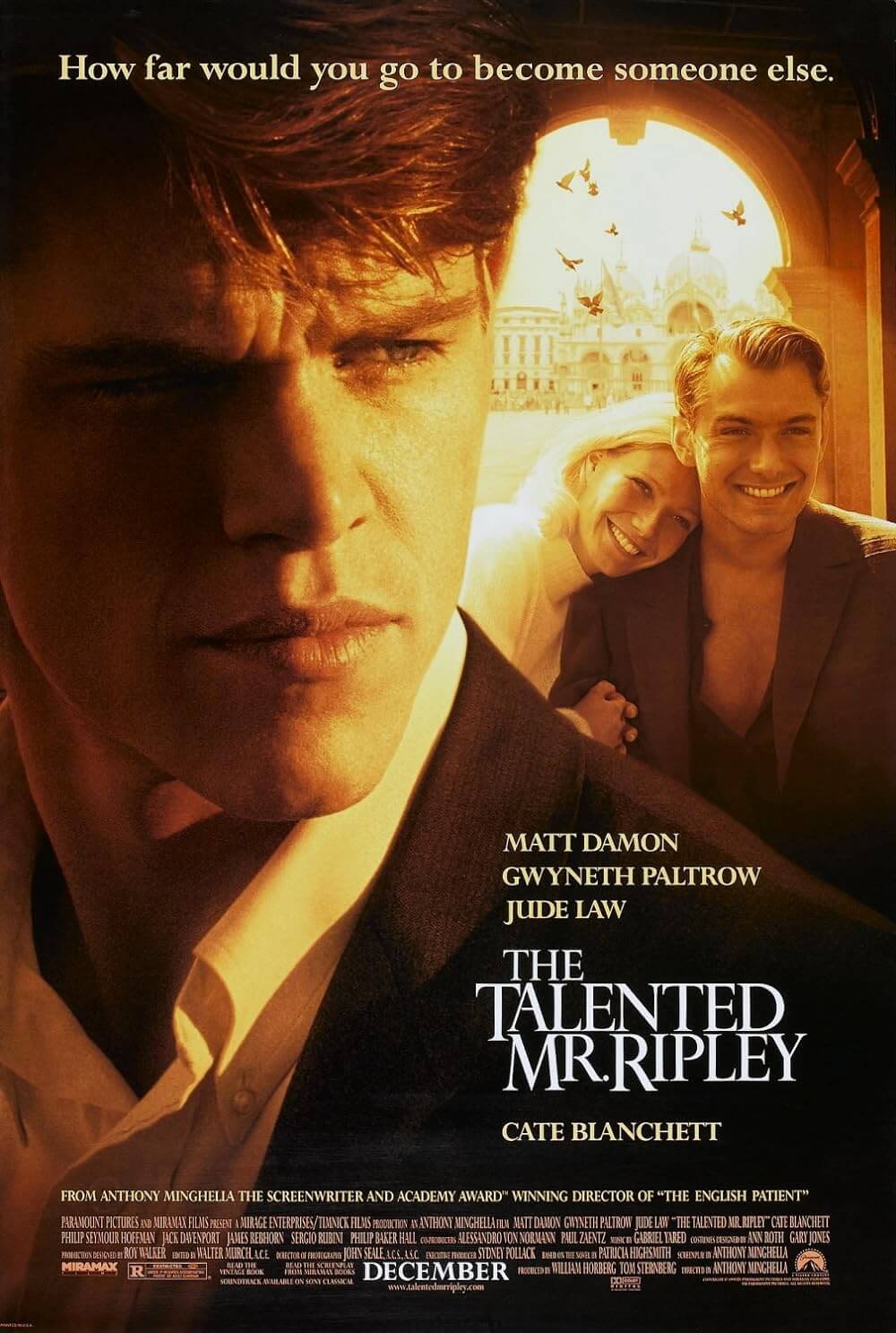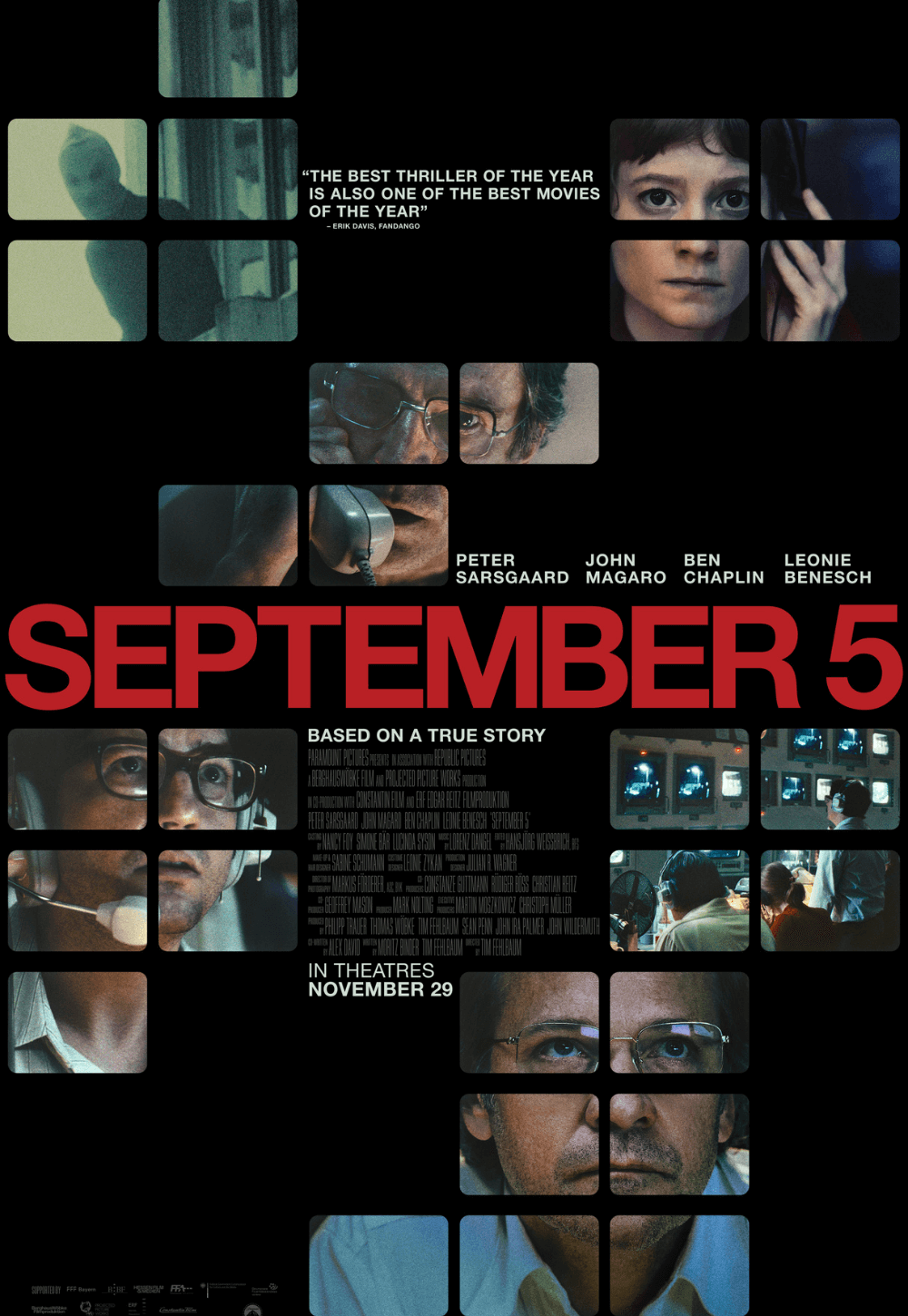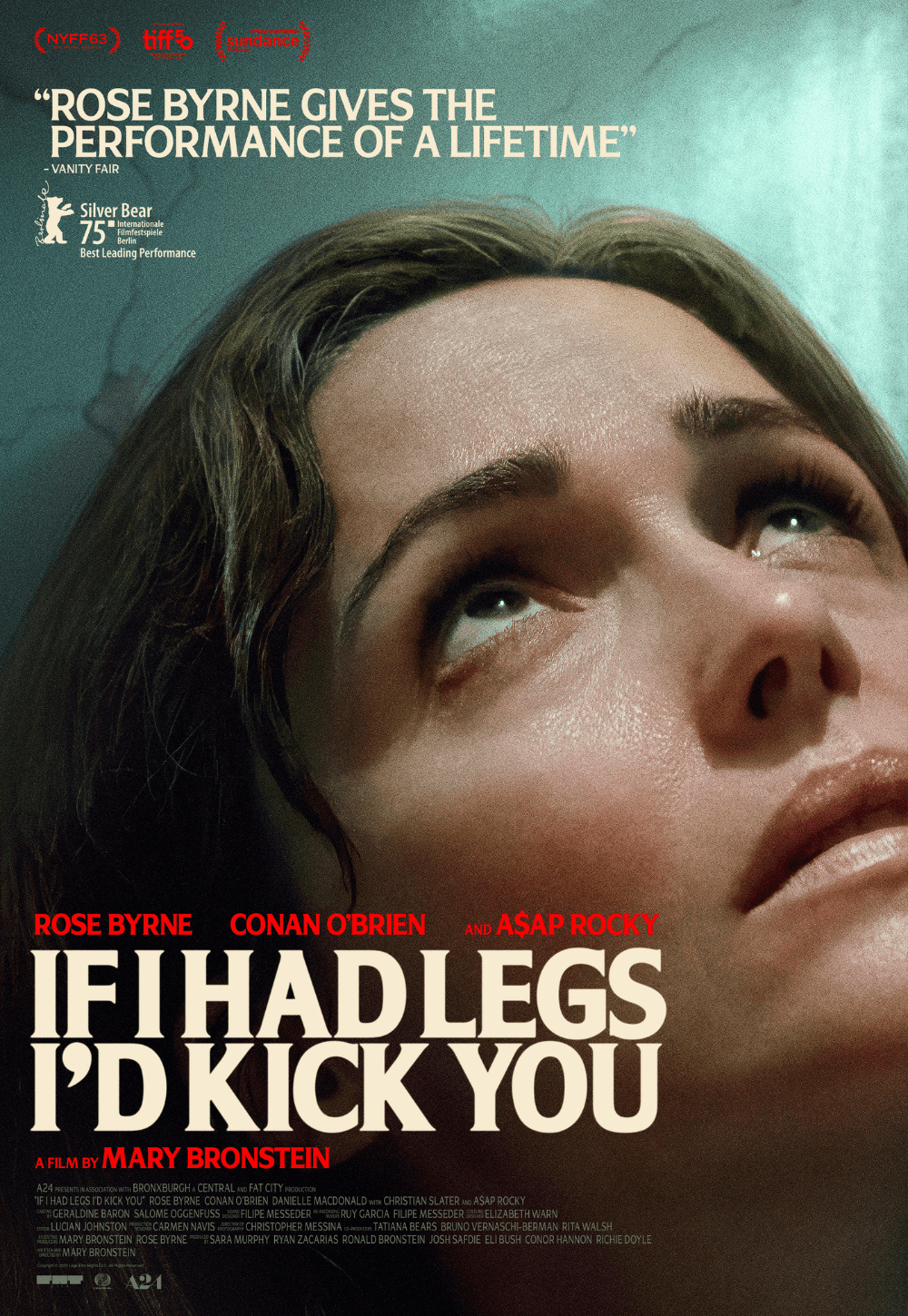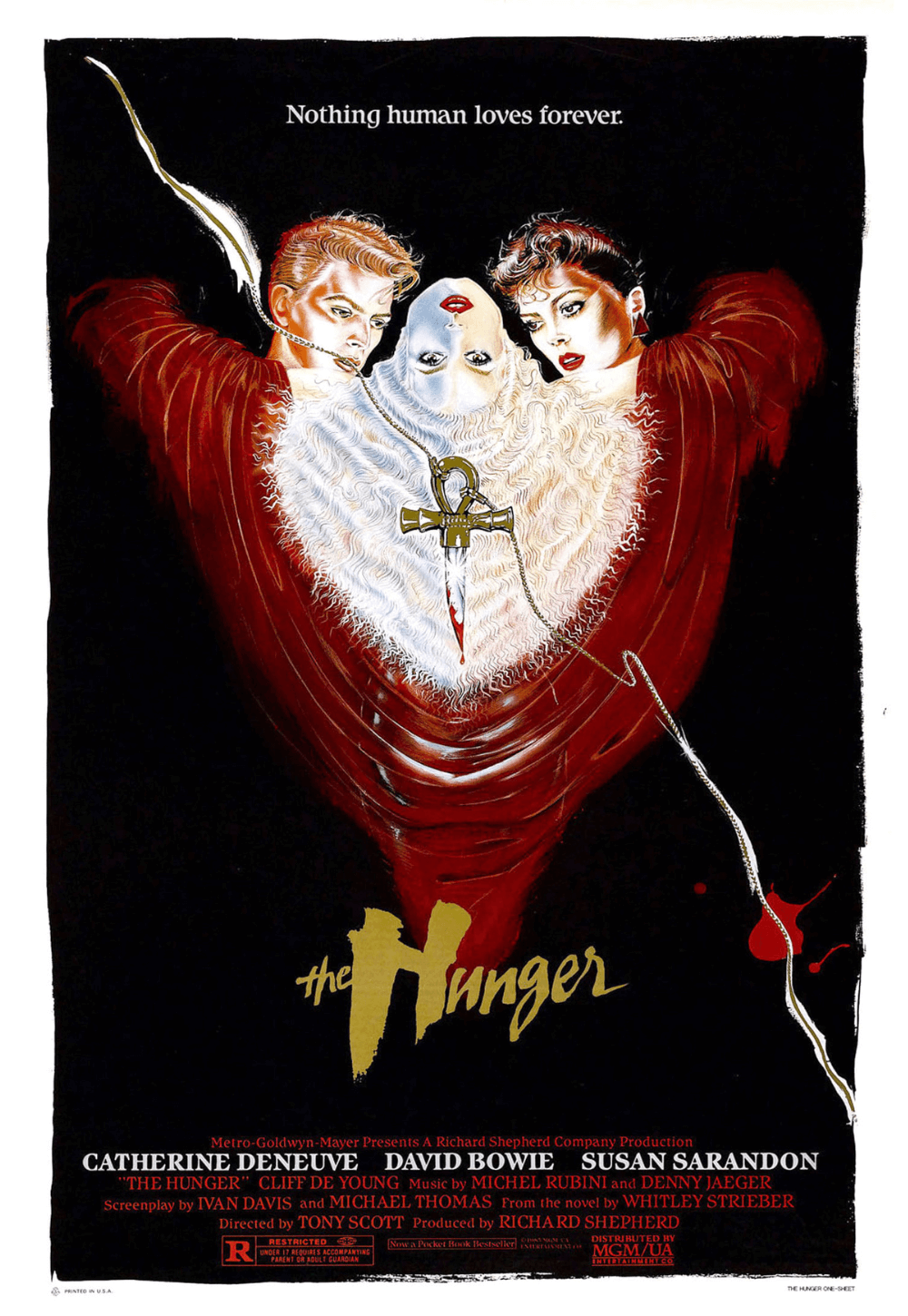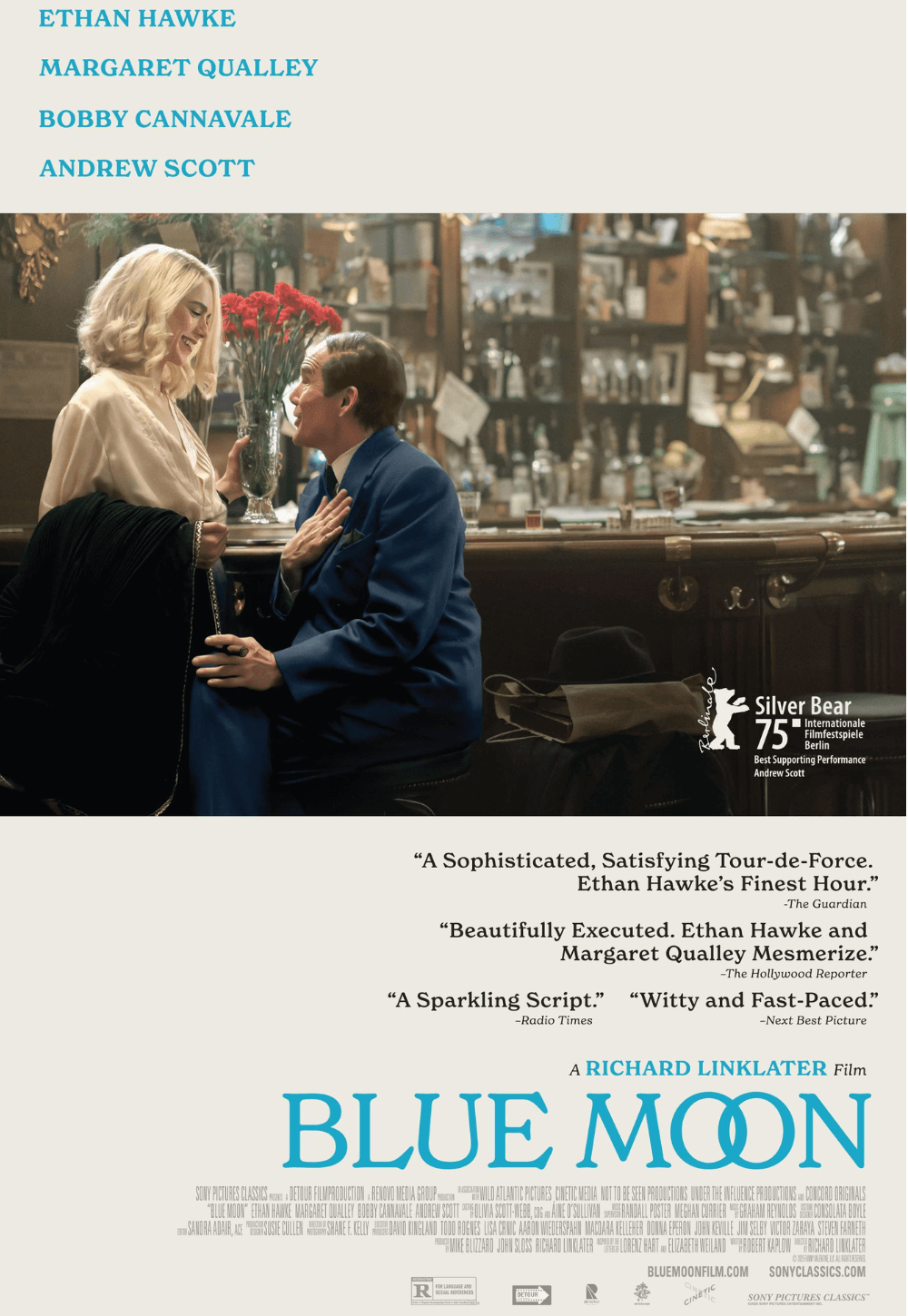Reader's Choice
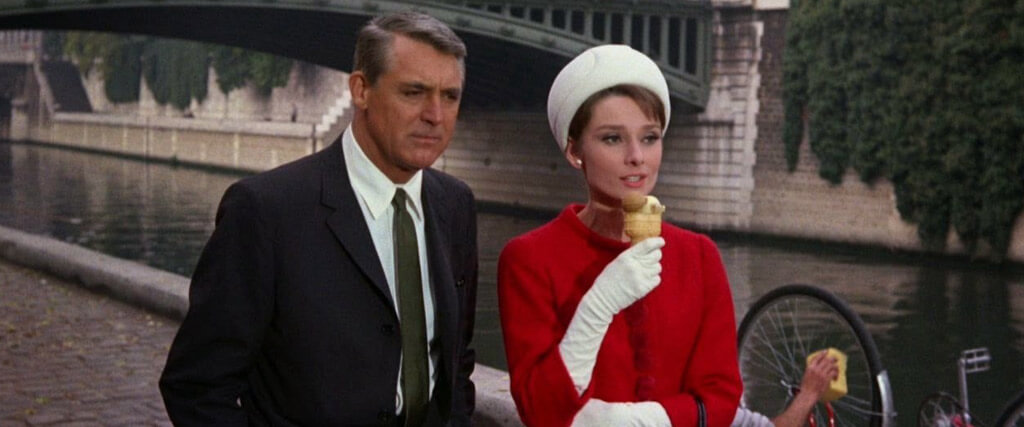
Charade
By Brian Eggert |
It’s almost a cliché at this point to call Charade the best Alfred Hitchcock film not directed by Hitchcock. Yet, there’s an undeniable truth behind the claim. The 1963 film contains a veritable checklist of Hitchcockian tropes: a woman in trouble, an elegant hero, a few murders, gorgeous scenery and costumes, and a blend of comedy and suspense. Although its scenario proves familiar in the era of Hitchcock, its stars, Audrey Hepburn and Cary Grant, elevate this bright and romantic fare. Did Hollywood ever produce two icons more elegant and sophisticated, yet also charming and accessible? Their on-screen chemistry, coupled with dangerous and delicious plotting, make Charade an essential work of 1960s entertainment. Filled with memorable dialogue and a few hair-raising scenes, the film works because Hepburn and Grant look so good and appear to have so much fun together, regardless of their significant age difference of nearly a quarter-century. “I could already get in trouble for transporting a minor above the first floor,” jokes Grant’s character. But his reluctance makes their inevitable embrace all the more endearing. Whatever similarities one might find to Hitchcock and whatever questions one might have about the plotting disappear in the sheer bliss of watching Hepburn and Grant enjoy each other’s company.
Charade seems like an odd choice for director Stanley Donen, who was primarily known for directing musicals and lighthearted romances by 1963. Before Hollywood, he had a brief career as a stage performer and assistant stage manager; then he started choreographing several MGM musicals alongside Gene Kelly, most famously Anchors Aweigh (1945). Within a few short years, he moved to co-directing alongside Kelly, and they made Singin’ in the Rain (1952) together. Then Donen branched out into a solo career. Seven Brides for Seven Brothers (1954), The Pajama Game (1957), and The Grass Is Greener would follow, each demonstrating that he could adjust his style to the material while maintaining a vigorous onscreen energy and visual ingenuity. One of his finest touches comes in Indiscreet (1958), which features Ingrid Berman as an actress who carries on an affair with a married, albeit separated man, played by Cary Grant. Rather than place them in bed together, Donen shows them on the phone, talking from their respective bedrooms. Juxtaposed together with split-screen, the two images create the impression that they’re sharing the same bed. It’s a trick worthy of Lubitsch. Donen had a way of innovating on established styles and making them his own.
Indeed, the pre-credits scene in Charade feels like a Hitchcockian opener. A train passes by, and someone throws out a man in his pajamas. The victim tumbles down a steep hill and hits the bottom, where the close-up frame reveals his face, bruised and unquestionably dead. Then Henry Mancini’s jazzy, upbeat tempo arrives on the soundtrack, signaling the Saul Bass-esque titles in a swirling array of very 1960s shapes and colors. It’s like the opening of Hitchcock’s Vertigo (1958), except with a pulse. Then comes a decidedly macabre flourish, which signals Charade’s sense of humor: Audrey Hepburn’s Reggie Lampert, who’s hilariously always eating to calm her nerves, enjoys a meal in the French Alps. She does not yet know her husband has died. Suddenly, an arm extends from behind a sun umbrella, and in the hand is a Luger pistol. Is she next? It aims and fires, hitting Reggie square in the face with a stream of water. Throughout Charade, moments of suspense are offset by riotous humor, usually in the form of Hepburn’s irresistible response. And this manner of creating tension, and supplying a brief reprieve, only to create tension again, is a blueprint for Hitchcock’s most entertaining films.
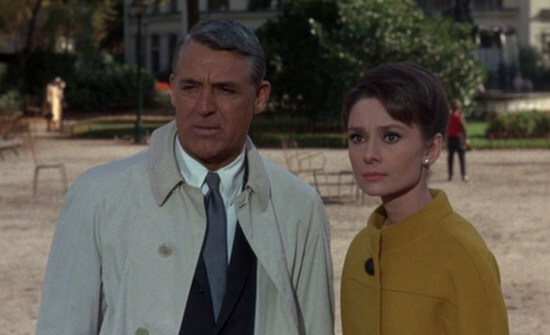
Donen disliked the comparisons between Charade and Hitchcock. “Who said it was only Hitchcock who had the right to make mysteries?” wondered Donen. But it wasn’t just the mystery or even the thrills that likened Donen’s film to something conjured by the Master of Suspense. Charade bears a distinct playfulness around murder, and what’s more, corpses. There’s a ghastly and funny sequence where the trio of villains (James Coburn, George Kennedy, Ned Glass) check the body of Reggie’s late husband to ensure he’s dead. And like Hitchcock often does, Donen makes excellent use of actual locations, capturing a veritable guidebook of landmark stops in Paris (Notre Dame, the Champ Elysees, the Palais Royale). Spies, and their elaborate schemes, had long been a staple of Hitchcock’s cinema, and so had mistaken identity. In that sense, Charade is a wrong-woman thriller in the same manner as Hitchcock’s many wrong-man thrillers. Then, of course, there was Cary Grant, considered by Hitchcock to be the perfect leading man. These ingredients blend into a delightful cocktail that tastes something like North by Northwest (1959) with a splash of To Catch a Thief (1955) and some The Trouble with Harry (1955) bitters. Donen admired North by Northwest, and the way Ernest Lehman’s screenplay presented Grant’s character as “somebody who didn’t exist. It’s a marvelous situation. That way, he could never prove that he wasn’t somebody who wasn’t alive.”
Something similar occurs in Charade. The story’s villains chase after Reggie because they think she has the 250 thousand dollars owed to them by her late husband, but she doesn’t have it, at least not knowingly. Cary Grant, under the name Peter Joshua, helps her navigate the mystery out of the sheer kindness of his heart. But later, he will be known as Alexander Dyle, Adam Canfield, and Brian Cruikshank, and each identity comes with its own motivations. Reggie also receives intelligence from a spy (or alternatively, “Agent”) named Hamilton Bartholomew, played by Walter Matthau, who remains on the sidelines, squirreled away in his office at the U.S. embassy, eating liverwurst sandwiches. The villains close in, certain that Reggie has their money. One of them threatens her by lighting matches and dropping them on her lap. We cannot help but wonder, why doesn’t she just blow them out? No matter. The knotty spy mechanics and occasional goofiness are less important than the burgeoning romance between Hepburn and Grant, who seem to play off their celebrity personas and admiration for each other. At one point, Hepburn touches Grant’s dimpled chin and asks, “How do you shave in there?”
Peter Stone wrote the novel, his first, called The Unsuspecting Wife, which was “really poor,” according to the author. Actually, Stone started out by writing a script, with Grant and Hepburn in mind for his two main characters no less. His agent showed the script to several studios, but they rejected it. Stone was encouraged to write out the material into a short novel, which he did, and it was published as a cheap paperback. The bids immediately came rolling in; the studios wanted to adapt the same material they had rejected in script form. Although most of the bids came from Hollywood distributors, one came from a director. Stone signed with Stanley Donen because he had directed Hepburn on Funny Face (1957) and Grant on several pictures. Donen had been working at Columbia at the time, and he arranged to get a $3 million budget with Grant and Hepburn attached to star. But Grant turned down the picture, saying he had another deal with Howard Hawks for Man’s Favorite Sport, and he was waiting for that script before he agreed to anything else. Hepburn was out if Grant was out, which left Columbia no choice but to downgrade the budget. Donen resolved to set up his own production company and arranged for Universal to distribute the film instead. He started looking for an alternate cast, and the studio recommended Paul Newman, or Warren Beatty and Natalie Wood. That’s when Grant contacted Donen and said he turned down the script for Man’s Favorite Sport after all (the role went to Rock Hudson). It was bad timing. Columbia sued Donen for going to a competing studio with the Cary Grant project he had originally pitched to them.
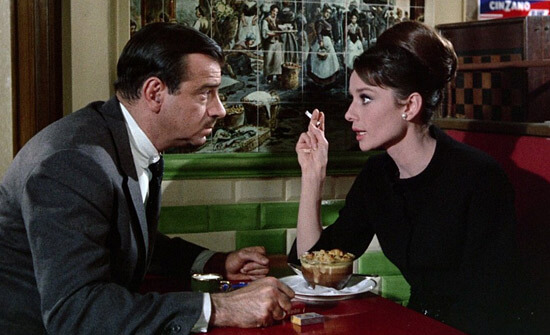 Even after the legal snafu, Charade faced some additional challenges. Grant, 59 at the time, demanded slight changes to Stone’s script, downplaying the degree to which his character romantically pursues Hepburn, who was more than twenty years younger. The changes, with lines like “I’m old enough to be your father,” make it more apparent that Hepburn’s Reggie Lampert falls for Grant’s character and pursues him almost to the point of pestering him. Of course, not even Grant’s protests could stop the May-December romance that remains so essential to the film’s allure. However, one change that did not occur involved Walter Matthau’s request to Donen: “I should be playing the Cary Grant part.” Matthau started his career playing sleazeballs and bad guys—he would not develop his comic persona until later in the 1960s, working with Billy Wilder and Jack Lemmon. Needless to say, Donen didn’t take Matthau’s note. The most significant challenge for the production occurred when the United States and the Soviet Union brought the world to the brink of nuclear war in the Bay of Pigs. Donen was so distraught that, as observed by his biographer Stephen M. Silverman, he announced to the cast and crew, “The world is going to blow up at any second, and here we are making a dumb movie.”
Even after the legal snafu, Charade faced some additional challenges. Grant, 59 at the time, demanded slight changes to Stone’s script, downplaying the degree to which his character romantically pursues Hepburn, who was more than twenty years younger. The changes, with lines like “I’m old enough to be your father,” make it more apparent that Hepburn’s Reggie Lampert falls for Grant’s character and pursues him almost to the point of pestering him. Of course, not even Grant’s protests could stop the May-December romance that remains so essential to the film’s allure. However, one change that did not occur involved Walter Matthau’s request to Donen: “I should be playing the Cary Grant part.” Matthau started his career playing sleazeballs and bad guys—he would not develop his comic persona until later in the 1960s, working with Billy Wilder and Jack Lemmon. Needless to say, Donen didn’t take Matthau’s note. The most significant challenge for the production occurred when the United States and the Soviet Union brought the world to the brink of nuclear war in the Bay of Pigs. Donen was so distraught that, as observed by his biographer Stephen M. Silverman, he announced to the cast and crew, “The world is going to blow up at any second, and here we are making a dumb movie.”
But the world did not end, and Charade is not a dumb movie. Rather, it was Donen’s biggest box-office success, and it features some sharp dialogue and genuinely suspenseful moments. The violence, though, was too much for Universal. Even though Hitchcock could and often did get away with murder in his films, a few dead bodies and a breathless rooftop fight sequence in a Donen film were enough to compel the studio to preview Charade, just to ensure it played well with audiences. After two preview screenings, the audience had spoken: the violence would stay in the picture (thanks in part to Stone and Donen’s sly manipulation of the survey cards). Still, the violence would be an issue for some critics, who questioned why a film about spies and murder had opened in early December, just two weeks after the assassination of John F. Kennedy. In his review in The New York Times, Bosley Crowther complained about the “grisly touches” in an otherwise positive review. But most critics enjoyed Charade and its romantic escapism. Pauline Kael called it “probably the best American film of last year—as artificial and enjoyable in its way as The Big Sleep.”
Charade was such a hit that Universal wanted to duplicate it, and they compelled Donen to produce and direct another zippy romantic thriller co-written by Stone. Arabesque was based on a 1961 novel called The Cypher by Alex Gordon. Julian Mitchell and Stanley Price penned the initial drafts, and Stone was hired to punch up the dialogue. Stone, credited under the pseudonym Pierre Marton, rewrote the script, but Donen was indifferent toward the picture even after the revisions. Grant wasn’t interested either, even though the leading man part had been written for him. The film, which once again placed an older gentleman with a younger woman, would star Gregory Peck and Sofia Loren. Arabesque, a title suggested by Peck, also bears a resemblance to Charade for its dizzying opening credits sequence, its blithe attitude toward spy games and murder, and its sheer bankability. It would go on to earn profits, but its $5.8 million at the box office was paltry compared to Charade’s more than $13 million. There was just no replicating the magic that Grant and Hepburn brought to the screen.
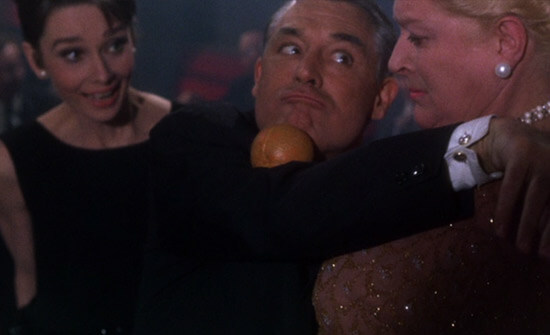 The 1960s brought a strain of similar comic-thrillers, most of them drawing from the works of Ian Fleming and spy yarns directed by Hitchcock, especially North by Northwest. Everyone wanted something similar, resulting in many variations on a theme. When they set out to make Dr. No, producers Albert R. Broccoli and Harry Saltzman tried to convince Cary Grant to play James Bond, hoping to capture his debonair Roger O. Thornhill magic. But Grant turned down the role. Sean Connery took over and proved in 1962 that a more violent brand of spy story appealed to viewers. Charade comes out of this spy soup, although its differences remain notable. For starters, the story does not revolve around a man. The audience follows Audrey Hepburn through dizzying twists and turns, hinted at by the animated titles. Grant’s character remains on the periphery, and with few exceptions, scenes rarely feature Grant and not Hepburn. She drives the story and the romantic tension as well, even if she too easily fulfills the trope of a helpless, childlike woman who needs a man to rescue her. Hepburn often played these roles: she was rescued by Gregory Peck in Roman Holiday (1953), Humphrey Bogart in Sabrina (1954), and Fred Astaire in Funny Face.
The 1960s brought a strain of similar comic-thrillers, most of them drawing from the works of Ian Fleming and spy yarns directed by Hitchcock, especially North by Northwest. Everyone wanted something similar, resulting in many variations on a theme. When they set out to make Dr. No, producers Albert R. Broccoli and Harry Saltzman tried to convince Cary Grant to play James Bond, hoping to capture his debonair Roger O. Thornhill magic. But Grant turned down the role. Sean Connery took over and proved in 1962 that a more violent brand of spy story appealed to viewers. Charade comes out of this spy soup, although its differences remain notable. For starters, the story does not revolve around a man. The audience follows Audrey Hepburn through dizzying twists and turns, hinted at by the animated titles. Grant’s character remains on the periphery, and with few exceptions, scenes rarely feature Grant and not Hepburn. She drives the story and the romantic tension as well, even if she too easily fulfills the trope of a helpless, childlike woman who needs a man to rescue her. Hepburn often played these roles: she was rescued by Gregory Peck in Roman Holiday (1953), Humphrey Bogart in Sabrina (1954), and Fred Astaire in Funny Face.
But unlike James Bond, Charade’s protagonist does not make everything look easy, sexual conquests above all. Despite her classy wardrobe by Givenchy, Reggie is awkward, a nervous eater, and occasionally clumsy, leading to a forced moment when she plunges an ice cream cone into Grant’s suit. Hepburn’s pursuit of Grant has the quality of a Lubitsch romance, relying on subtle innuendo and humor. The sole exception is a sequence in a Parisian nightspot where they play Pass the Orange. What starts as a humorous scene where Grant rubs against a bemused fat woman overflows with sexual tension when Hepburn and Grant maneuver their bodies against each other, and it’s enough to spark something in Reggie. This scene aside, their playful interactions recall a sexual reservedness more often associated with Classic Hollywood titles as opposed to the new liberties given to films in the 1960s. When Reggie first meets Grant’s Peter Joshua, their exchange is lively and flirtatious. “Is there a Mr. Lampert?” he asks. “I’m getting a divorce,” she replies. “Please, not on my account,” he quips. Stone’s screenplay features no end of magnetic exchanges like this, leading to the inevitable moment where Grant’s reluctant lover finally acquiesces. And not unlike another Lubitsch-inspired romance starring Hepburn, Billy Wilder’s Love in the Afternoon from 1957, where she was paired opposite Gary Cooper, the May-December relationship in Charade works somehow. They’re wrong for each other, but they’re also so right together.
Hepburn and Grant make Charade feel effortless, and because of that, Donen jolts his unsuspecting audience with the occasional chilling image or shock. Note the shot from inside a morgue drawer, or the bloody attack on Grant by Kennedy’s hook-handed criminal, who later ends up drowned in a bathtub. When most of the film entails Hepburn and Grant having a good time together, these macabre details catch us by surprise, even upon rewatching it. Still, the stars leave the plot secondary and render the film’s few flaws (for instance, Reggie refers to herself as an American living in Paris, despite Hepburn’s British accent) negligible. And anyway, it’s impossible to hold anything against a film that features Grant taking a shower in a suit. Charade marks the last great film in Grant’s career; he would retire a few years later. Hepburn would continue acting into the 1980s, but she was rarely more dazzling than her appearance opposite Grant. Whether it’s the Hitchcockian touches, the constant laughs and thrills, or the blissful pairing of the two leads, Charade continues to delight and reward each new viewing, confirming its status as an escapist classic.
(Editor’s Note: This review was suggested and commissioned on Patreon. Thank you for your support, Elizabeth!)
Bibliography:
Paris, Barry. Audrey Hepburn. Berkley; Reissue Edition, 2001.
Schickel, Richard. Cary Grant: A Celebration. Little, Brown, 1983.
Silverman, Stephen M. Dancing on the Ceiling: Stanley Donen and His Movies. Alfred A. Knopf, 1996.
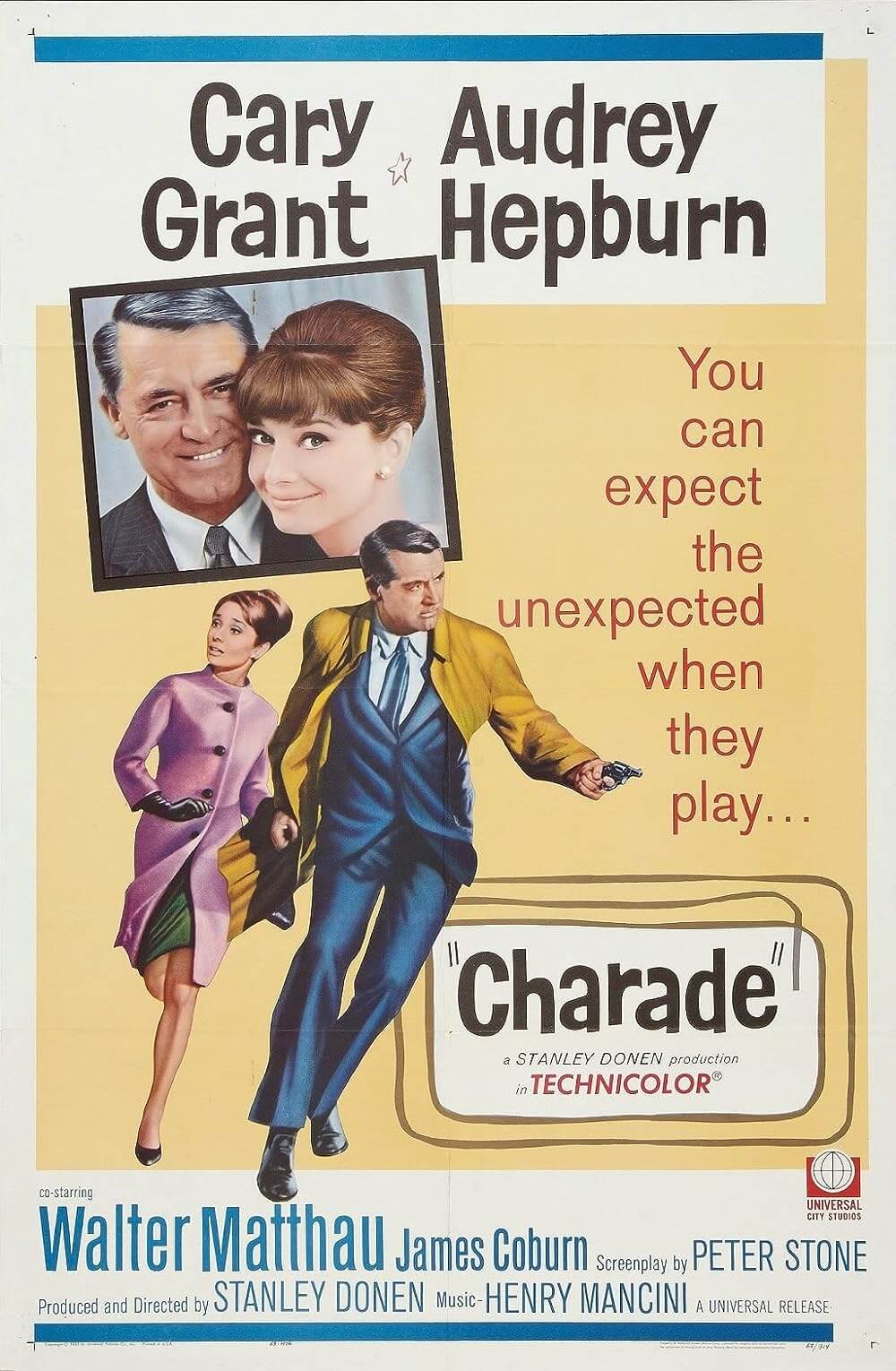
If You Value Independent Film Criticism, Support It
Quality written film criticism is becoming increasingly rare. If the writing here has enriched your experience with movies, consider giving back through Patreon. Your support makes future reviews and essays possible, while providing you with exclusive access to original work and a dedicated community of readers. Consider making a one-time donation, joining Patreon, or showing your support in other ways.
Thanks for reading!
Brian Eggert | Critic, Founder
Deep Focus Review



